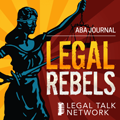By Jason Tashea

Image from Shutterstock.com.
In the United States, an estimated 70 million people have a criminal record. Being tagged with this scarlet letter can affect a person’s ability to find employment, housing and even potential relationships.
Yet having a criminal record does not mean that a person was found guilty or even charged with a crime. It can merely mean that a person was arrested and released.
Meanwhile, the expansion of freedom of information laws and the internet has changed how criminal records are used and who has access to them. These changes raise questions around the purpose of criminal records and the limits of legal remedies like expungement and sealing.
To make better sense of these issues, Colleen Chien, a professor at Santa Clara University School of Law, and Sarah Lageson, an assistant professor at Rutgers University School of Criminal Justice, came together to talk about their research into the modern trials and tribulations of expungement and sealing of criminal records.
“The thing about criminal records that makes them so challenging is that they are so easy to access and very hard to interpret correctly,” Chien says.
Because adult arrest records are largely public and the internet makes them easy to publish and access, employers, apartment management companies and others are able to factor criminal records into their decision-making to the detriment of people with minor criminal records, like those with an arrest without charge.
While legal ways to erase or hide some types of records exist, these remedies are poorly used, Chien says.
“There’s a lack of awareness that this remedy exists,” she says. Her own research estimates that the uptake of remedies, like the Obama-era clemency program and California’s program to recategorize some nonviolent felonies as misdemeanors, which would open the door to expungement for many, is less than 10%.
In an attempt to improve these remedies, Chien points to recent laws passed in California and Pennsylvania that would automate aspects of expungement and sealing.
Generally, people have to apply to have their records obscured from public view. Now, both states will do the work for people if their record meets specific criteria.
“Automation makes possible what would take years, maybe even decades—hundreds of years—to get done through a petition process,” Chien says.
Beyond what governments and lawyers are doing in this space, technology companies are also trying to make their mark.
One example was Google’s 2013 decision to de-list mug shot websites, which meant that the sites no longer appeared in Google’s search results. While Google’s act was well intended, Lageson says by de-listing a couple of mug shot websites six years ago, it led other mug shot sites to improve and work around this hurdle.
Regardless of the platform that a person finds their record published on, Lageson says anyone with a record has the ability to access their official rap sheet in the state where it exists. With this, people can correct inaccuracies and, depending on the state they live in, challenge a website to take down or make accurate the information they’ve published.
“People are terrified of what’s on their record; they are confused by it—they’re indecipherable,” she says. “But I think getting some literacy for people and access for people to their own records is a crucial first step.”


Colleen Chien and Sarah Lageson.
Colleen Chien is a professor at Santa Clara University School of Law where she teaches, mentors students and conducts empirical research on innovation, intellectual property and the criminal justice system. From 2013 to 2015, Chien served in the Obama White House as a senior adviser of intellectual property and innovation, working on a broad range of patent, copyright, technology transfer, open innovation and other issues. She is nationally known for her research and publications on domestic and international patent law and policy issues. Sarah Lageson is an assistant professor at Rutgers University School of Criminal Justice. She received her PhD in sociology from the University of Minnesota. Her current research examines the growth of online crime data, mug shots, and criminal records that create new forms of “digital punishment.” Lageson is a grant recipient of the National Institutes of Justice’s New Investigator Early Career Award for her study of criminal records.